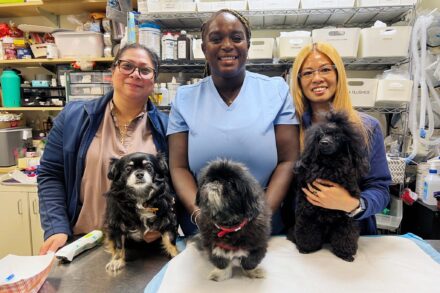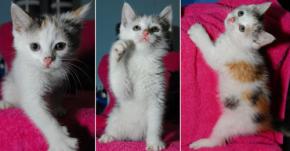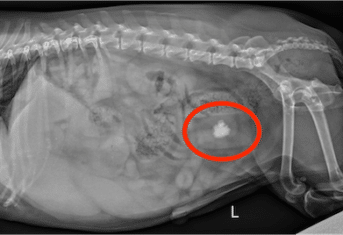Pet Food Recalls

Pet Food Recalls
Yesterday, the Iams Company voluntarily recalled Iams ProActive Health canned cat and kitten food – all varieties of 3 oz & 5.5 oz cans (date on the bottom of the can is 09/2011 to 06/2012). The Iams Company quality assurance team identified a deficiency of vitamin B1, also called thiamine, in this line of cat food. Cats can easily become thiamine deficient. If your cat is eating any of the recalled foods and appears sick in any way, please see your veterinarian immediately. Thiamine deficiency can easily be treated if recognized early. For more information, visit the Iams website.
The Food and Drug Administration (FDA) regulates pet food. Regulations indicate pet food should be sanitary, safe for consumption and truthfully labeled. Unlike FDA approved medications for your pet, food does not have to undergo a pre-market approval process. The FDA regulates pet food labels in two ways. First, pet food must be correctly identified: what’s in it, who makes it, where is it made. Second, the FDA reviews specific health claims of pet food such as “promotes urinary tract health” or “prevents dental tartar.”
A recall can be one of three different types. The most common is a voluntary recall, and this recall is just that type. During a voluntary recall, the manufacturer realizes the food or medication is in some way unsafe and issues a recall. Distributors are alerted to remove unsold product from stores. As a service to consumers, a press release is posted on the FDA website. Less commonly, the FDA can request a recall if their investigation identifies a safety issue with a food or medication. And finally, the FDA has statutory power to mandate a recall.
Pets and humans share a common environment, food and often the same diseases. A human food recall could affect our pets if they were sharing our hamburger that gets recalled. A pet food recall can directly affect us as well. Recalled food can be risky for those handling the food, not just those eating it. For example, pet foods are at risk for being contaminated by a bacterium called Salmonella. Pets eating the food can get sick, and humans who prepare the food for their pet without properly washing their hands after handling the contaminated food could contract Salmonellosis too. Since humans are not eating this food, this particular recall is of consequence only to our cats. The recalled cat food poses no safety issues for the humans in the family.
Here are some suggestions to protect yourself and your pet against food-borne illnesses. Always wash your hands thoroughly after handling any food, especially raw meat. Wash your pet’s food and water bowls daily in hot, soapy water to remove any microorganisms. If your pet’s food smells strange or looks different than it usually does, discard it. Proper storage will protect food against spoiling. Opened wet food should be refrigerated and dry food should be stored in a tightly closed container at less than 80oF to preserve freshness. And finally, always save the label from the food you are feeding as a resource in case the food your pet is eating undergoes a recall.
_______________________________
For nearly a century, The Animal Medical Center has been a national leader in animal health care, known for its expertise, innovation and success in providing routine, specialty and emergency medical care for companion animals. Thanks in part to the enduring generosity of donors, The AMC is also known for its outstanding teaching, research and compassionate community funds. Please help us to continue these efforts. Send your contribution to: The Animal Medical Center, 510 East 62nd Street, New York, NY 10065. For more information, visit www.amcny.org. To make an appointment, please call 212.838.7053.


































